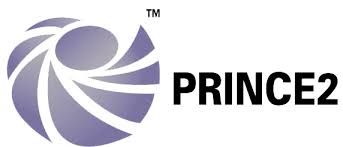
Project Integration, Scope, Time, Cost, Quality and Project Resources Management (PMK Workshop 1, 2) - Certified Program
Course ID: 2508117101182EGI
Course Dates : 11/08/25 Course Duration : 10 Studying Day/s Course Location: Dubai, UAE
Language: Bilingual
Course Category: Professional and CPD Training Programs
Course Subcategories: Leadership and Management Excellence
Course Certified By: * Projacs Academy
* Professional Training and CPD Programs
Certification Will Be Issued From :
KSA
Course Fees: £5,731.58
Vat Not Included in the price. VAT may vary depending on the country where the course or workshop is held.
Click to Pay
Date has passed please contact us Sales@e-s-hub.com
Course Information
Introduction
Project management has emerged as a cornerstone of organizational success, particularly in industries characterized by complexity, rapid change, and high stakes. The ability to effectively integrate, scope, schedule, budget, ensure quality, and allocate resources is no longer optional but essential for delivering projects that align with strategic objectives. This course delves into the core principles of project management, offering participants a comprehensive understanding of these critical domains. Drawing on established frameworks such as PMBOK® (Project Management Body of Knowledge) and Agile methodologies, the program equips professionals with the tools to navigate the multifaceted challenges inherent in modern projects.
One of the most pressing challenges in project management today lies in the misalignment between planning and execution. For instance, organizations often struggle with scope creep, where uncontrolled changes lead to delays, cost overruns, and compromised quality. A notable example is the Denver International Airport’s baggage handling system, which faced catastrophic delays due to poor scope definition and integration. This course addresses such gaps by teaching participants how to define clear project boundaries, manage stakeholder expectations, and implement robust control mechanisms to prevent deviations from planned objectives.
The benefits of mastering project management extend beyond individual career advancement to encompass organizational resilience and competitiveness. Professionals who excel in these areas are better positioned to drive efficiency, foster innovation, and enhance customer satisfaction. Organizations, in turn, benefit from improved project outcomes, reduced risks, and optimized resource utilization. With trends such as remote work and digital transformation reshaping the project landscape, the demand for skilled project managers continues to grow exponentially across sectors like IT, construction, healthcare, and finance.
This course leverages real-world case studies to demonstrate the practical applications of its content. Consider the success of NASA’s Mars Rover missions, which exemplify meticulous integration and resource management. By breaking down complex tasks into manageable components and adhering to stringent timelines and budgets, the team achieved groundbreaking results. Participants will explore similar scenarios, gaining insights into how theoretical concepts translate into actionable strategies in diverse contexts.
Moreover, the course emphasizes the interconnectedness of project management domains. For example, effective time management cannot be achieved without considering cost implications or resource availability. By adopting a holistic approach, participants will learn to balance competing priorities and make informed decisions that maximize value. This integrative perspective is particularly relevant in an era where cross-functional collaboration and adaptability are paramount.
Ultimately, this program is designed to empower professionals to become catalysts for change within their organizations. Whether leading small-scale initiatives or managing large, complex projects, participants will emerge equipped with the skills to deliver measurable results. Through a blend of theory, practice, and reflection, the course fosters a mindset of continuous improvement, enabling individuals to thrive in dynamic environments while contributing to sustainable growth.
Objectives
By attending this course, participants will be able to:
Analyze project requirements and develop integrated plans that align with organizational goals.
Evaluate scope definitions and apply techniques to mitigate scope creep and ensure project alignment.
Design realistic schedules using advanced scheduling tools and methodologies to meet deadlines effectively.
Implement cost estimation and budgeting practices to optimize financial resources and minimize variances.
Apply quality assurance frameworks to enhance project deliverables and achieve stakeholder satisfaction.
Who Should Attend?
This course is ideal for:
Project managers seeking to enhance their technical and leadership capabilities.
Team leaders responsible for overseeing project execution and performance.
Consultants tasked with advising organizations on project management best practices.
Engineers and architects involved in large-scale infrastructure or development projects.
Business analysts and IT professionals transitioning into project management roles.
Training Method
• Pre-assessment
• Live group instruction
• Use of real-world examples, case studies and exercises
• Interactive participation and discussion
• Power point presentation, LCD and flip chart
• Group activities and tests
• Each participant receives a 7” Tablet containing a copy of the presentation, slides and handouts
• Post-assessment
Program Support
This program is supported by:
* Interactive discussions
* Role-play
* Case studies and highlight the techniques available to the participants.
Daily Agenda
The course agenda will be as follows:
• Technical Session 08.30-10.00 am
• Coffee Break 10.00-10.15 am
• Technical Session 10.15-12.15 noon
• Coffee Break 12.15-12.45 pm
• Technical Session 12.45-02.30 pm
• Course Ends 02.30 pm
Course Outlines
Foundations of Project Integration Management
Overview of project integration management principles.
Key processes: Develop Project Charter and Project Management Plan.
Role of the project manager in integration.
Tools for monitoring and controlling project progress.
Day 2:
Defining Project Scope
Importance of scope definition in project success.
Techniques for gathering and documenting requirements.
Creating Work Breakdown Structures (WBS).
Managing stakeholder expectations.
Day 3:
Advanced Scope Management
Identifying and mitigating scope creep.
Change control systems and procedures.
Case study: Lessons learned from failed projects.
Practical exercise: Developing a scope statement.
Day 4:
Time Management Fundamentals
Introduction to scheduling methodologies (e.g., Gantt charts, Critical Path Method).
Estimating activity durations and sequencing tasks.
Resource leveling and smoothing techniques.
Using software tools for scheduling.
Day 5:
Mastering Time Management
Strategies for compressing schedules without compromising quality.
Managing dependencies and critical paths.
Risk assessment in time management.
Group activity: Building a project timeline.
Week 2
Day 6:
Cost Management Essentials
Principles of cost estimation and budgeting.
Types of costs: Direct, indirect, fixed, and variable.
Earned Value Management (EVM) basics.
Tracking and controlling project expenses.
Day 7:
Advanced Cost Control
Forecasting project costs and identifying variances.
Techniques for reducing costs without sacrificing quality.
Financial reporting for stakeholders.
Interactive session: Analyzing a sample project budget.
Day 8:
Ensuring Quality in Projects
Quality management frameworks (e.g., ISO standards, Six Sigma).
Planning for quality assurance and control.
Conducting inspections and audits.
Addressing quality issues proactively.
Day 9:
Managing Project Resources
Resource allocation and optimization strategies.
Building and leading high-performing teams.
Conflict resolution and motivation techniques.
Managing virtual and cross-cultural teams.
Day 10:
Synthesis and Application
Integrating all project management domains for cohesive execution.
Final case study: Applying lessons learned to a simulated project.
Certification exam preparation.
Closing remarks and feedback session.



















































